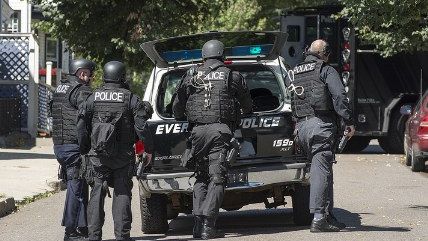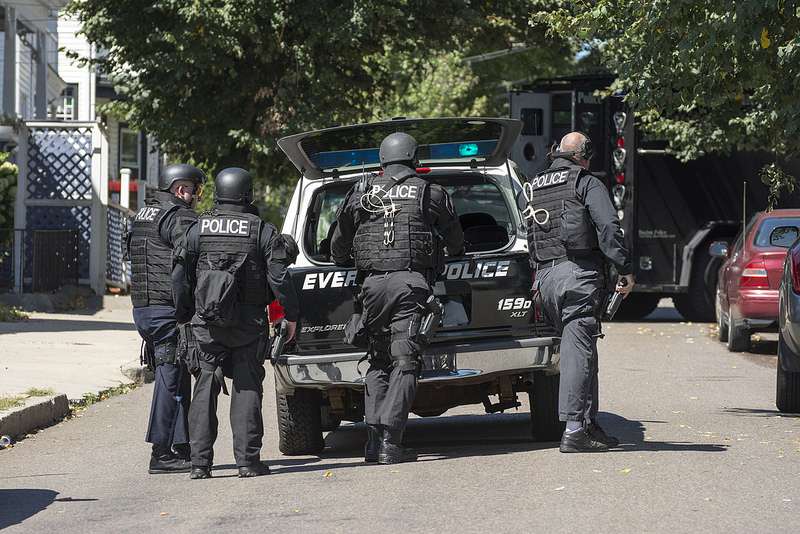FBI to Better Track Fatal Police Shootings—If the Departments Participate
Extremely inaccurate database to be replaced and revamped


The massive inaccuracy of federal figures tracking the number of people killed by police has been a focus of news coverage for the past two years. The FBI's numbers are so inaccurate and dependent on voluntary participation by states and law enforcement agencies that about half are missing. This year, both The Washington Post and The Guardian launched their own independent counts. The Washington Post reports more than 900 police-caused deaths in 2014 so far. The FBI only records about 400 a year.
The FBI has finally announced it is going to revamp and expand its system of tracking police encounters that turn violent with the intent to completely replace the current system by 2017. The Washington Post got the exclusive:
The new effort will go beyond tracking fatal shootings and, for the first time, track any incident in which an officer causes serious injury or death to civilians, including through the use of stun guns, pepper spray and even fists and feet.
"We are responding to a real human outcry," said Stephen L. Morris, assistant director of the FBI's Criminal Justice Information Services Division, which oversees the data collection. "People want to know what police are doing, and they want to know why they are using force. It always fell to the bottom before. It is now the highest priority." …
Morris said the data will also be "much more granular" than in the past and will probably include the gender and race of officers and suspects involved in these encounters, the level of threat or danger the officer faced, and the types of weapons wielded by either party.
The data also will be collected and shared with the public in "near real-time," as the incidents occur, Morris said, instead of being tallied in aggregate at the end of each year.
There is one hitch that may or may not turn out to be significant. The FBI does not have the legal authority to force local law enforcement agencies to participate in the new system. Reporting will remain voluntary.
So pressure and incentives matter. According to the Post, law enforcement heads who are already agreeing to participate in the new system will lobby others to participate as well. The Department of Justice is looking into offering federal grants to fund the costs of compliance for departments with tight budgets.
Community pressure matters, too. If citizens truly care about the conduct of the police in their neighborhoods, they'll push both the police and their municipal government leaders to provide information for this new database.
And honestly, police shouldn't resist for the same reason that police shouldn't resist body cameras. Yes, 900 police killings a year is a lot, given that there were about 14,000 murders in the United States in 2014. But in the bigger picture, given the hundreds of thousands of police officers out there, better statistics would actually help defend good departments against charges that they abuse their constituencies, just as body cameras result in fewer use-of-force complaints.


Show Comments (11)